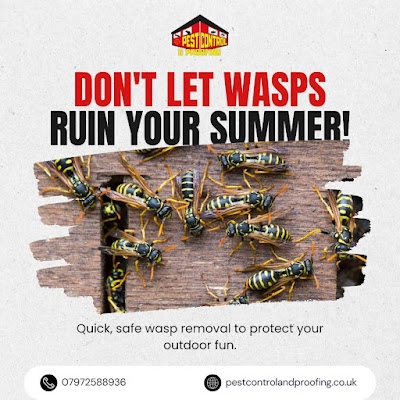Comprehensive Guide to Rodent Proofing, Bird Proofing, and Insect Pest Control
- Get link
- X
- Other Apps
Pest control is a crucial part of maintaining a safe and healthy property, especially when dealing with rodents, birds, and insects. Each type of pest poses unique challenges, from property damage to health risks. By implementing tailored approaches for rodent proofing, bird proofing, and insect pest control, you can enjoy a pest-free environment. This blog explores expert strategies and preventive measures for managing these common pest issues effectively.
Rodent Proofing: Safeguarding Your Property
Rodents such as rats and mice are known for causing extensive damage to property, contaminating food, and spreading disease. Rodent proofing involves identifying and sealing potential entry points to keep these pests out. Here are some effective methods:
- Seal Entry Points: Check for cracks, gaps, and holes around doors, windows, and foundation walls. Use steel wool or caulking to block small openings that rodents might use as entryways.
- Proper Food Storage: Store food in airtight containers to prevent attracting rodents. Keep garbage tightly sealed, and avoid leaving pet food out overnight.
- Maintain Clean Spaces: Regularly clean up crumbs, spills, and any clutter that could serve as hiding spots for rodents.
- Set Traps: Place traps in areas where you’ve noticed signs of rodent activity. For larger infestations, consider contacting a professional pest control service.
Bird Proofing: Keeping Birds at Bay
Birds can cause problems like property damage, noise, and mess, particularly in urban and suburban settings. Bird proofing methods are essential for keeping these issues under control without harming the birds.
- Install Bird Spikes and Nets: Bird proofing spikes prevent birds from perching on ledges and roofs, while netting is ideal for covering large areas like balconies and garden spaces.
- Use Visual Deterrents: Reflective items such as foil strips or predator decoys (like fake owls) can deter birds by mimicking threats.
- Implement Sound Deterrents: Certain ultrasonic devices emit sounds that repel birds without disturbing humans or pets.
- Protect Roof Spaces: Birds like pigeons and sparrows often nest in roof spaces. Seal any roof gaps and install wire mesh to prevent nesting.
Insect Pest Control: Eliminating the Smallest Invaders
Insects can become a nuisance inside homes, damaging food, property, and even posing health risks. Effective insect pest control focuses on prevention and targeted treatment to eliminate infestations.
- Seal Openings: Insects enter through tiny cracks, windows, and doors. Install weather stripping and use caulk to seal gaps.
- Proper Waste Management: Dispose of trash regularly, clean garbage bins, and avoid leaving food out. These actions will reduce food sources for insects.
- Use Natural Repellents: Essential oils such as peppermint, lavender, and eucalyptus act as natural repellents for insects like ants, spiders, and mosquitoes.
- Install Screens on Windows and Doors: Mesh screens provide a physical barrier that prevents insects from entering without blocking airflow.
- Apply Insecticides Responsibly: If you need to use chemical insecticides, follow the instructions carefully and use them in targeted areas to minimize risk.
Benefits of Hiring Professional Pest Control Services
While DIY methods can be effective, professional pest control services offer comprehensive solutions to pest issues, especially for severe or recurring infestations. Experts have access to advanced techniques, eco-friendly products, and equipment to ensure your space is thoroughly protected from pests.
Professional pest control companies can:
- Conduct thorough inspections to identify and address the root cause of infestations
- Implement safe, efficient, and effective treatments
- Provide long-term maintenance solutions, preventing future infestations
Preventive Measures for a Pest-Free Environment
- Maintain a Clean Property: Regular cleaning and organizing can deter many pests.
- Inspect Property Regularly: Check for cracks, leaks, and other potential entry points.
- Eliminate Standing Water: Standing water attracts insects, especially mosquitoes. Fix any leaks and ensure proper drainage.
- Trim Vegetation: Keep shrubs and trees pruned and away from the property to reduce pest hiding spots and entryways.
Conclusion
Effective rodent proofing, bird proofing, and insect pest control all play a significant role in protecting your property from unwanted pests. By employing targeted strategies, sealing entry points, and using deterrents, you can prevent infestations and ensure a safe, clean environment. Whether using DIY methods or seeking professional assistance, a proactive approach will keep pests at bay, protecting both your property and health.
- Get link
- X
- Other Apps

.jpeg)


Comments
Post a Comment